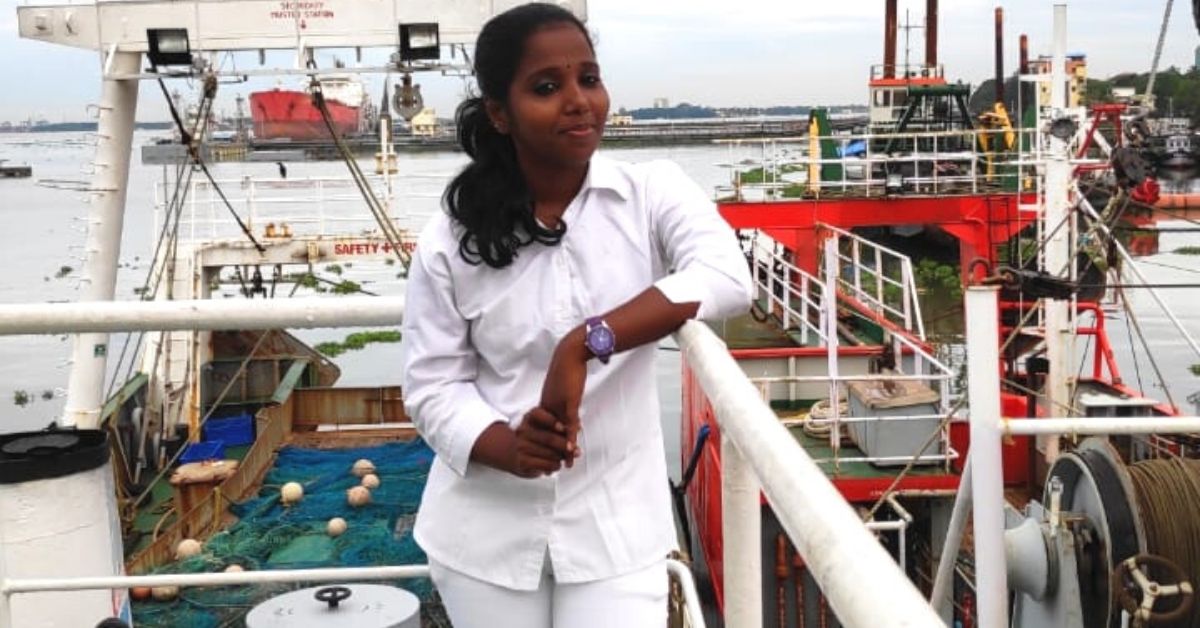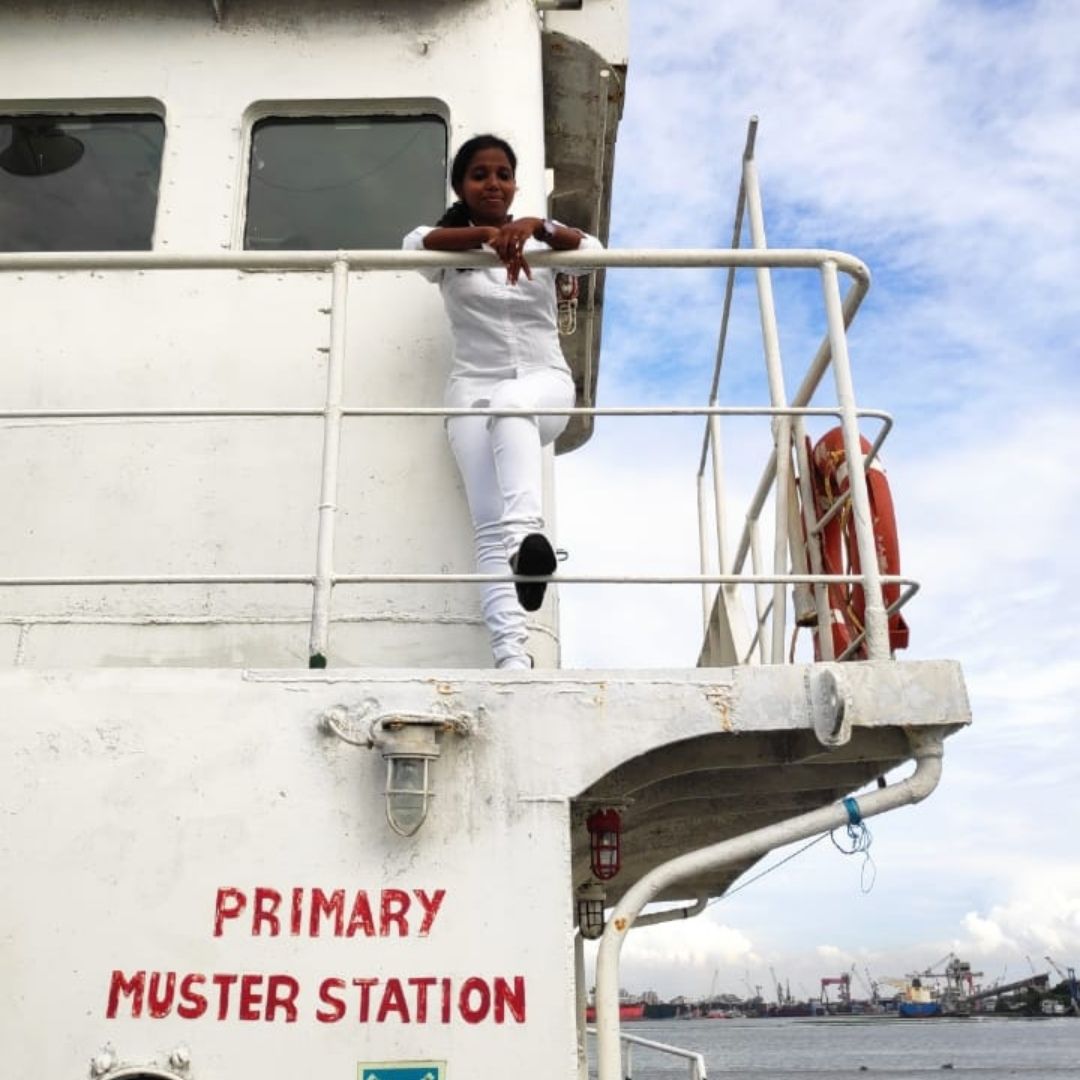“I was in my first year of college when (Captain) Skipper Arun addressed me as ‘Captain Haritha’ while asking me to respond to a query in his class. I got goosebumps when I heard my name along with that title. That moment did change my life and it made me ambitious to win the title for myself,” says Haritha KK, the first woman captain of a fishing vessel in India.
Haritha, 25, from Ezhupunna panchayat in Alappuzha, Kerala, believes that there’s nothing impossible for a woman to conquer, even the sea.
Haritha, who wished to join the Navy, was disqualified during the physical tests, as her physique didn’t match their requirements. That’s when she came to know about the Central Institute of Fisheries Nautical and Engineering Training (CIFNET) in Kochi and the opportunities it can offer.
Soon after completing her Bachelors in Fishing and Nautical Science from the CIFNET in 2016, Haritha decided to sail towards her dream to be a Captain.
She joined as a deckhand in Prashikshani, a training vessel by CIFNET and spent around 180 days sailing. “I was the first woman to be in the crew and my superiors and colleagues were very encouraging and welcoming. Being the only woman in the crew I was provided with all required facilities and I never felt left out or unsafe,” Haritha tells The Better India.
After her first sailing in 2017, Haritha had to take a slew of ancillary courses to prepare for the ‘Mate of fishing vessels’ examination, an exam to become a Mate or Chief Officer of a fishing vessel.
She cleared her Mate exam in October 2017 and became the first Indian woman to be recognised as Mate of Fishing Vessel, known as the chief officer or second-in-command.

“It was a step closer to my dream. I became a chief officer and sailed again for 450 days for two years in CIFNET’s vessel Prashikshani and the Fisheries Survey of India’s (FSI) vessel Lavanika. I led a crew of 21 and 15 members, respectively, and sailed through the India-Lakshadweep coast. It was a big responsibility,” says Haritha.
Talking about the difficulties she had to face at sea, Haritha says, “I used to get seasick very often. It was a bit difficult at the beginning, where I used to feel nauseous all the time. But my crew members were very understanding and supportive, else it wouldn’t have been possible.”
Haritha adds, “But I gradually overcame seasickness as my body started adjusting to the environment.”
As a requirement for her next exam to become a skipper (captain), along with her 450 days of sea service, Haritha had to attempt another set of ancillary courses and had to be medically fit. The skipper exam included a written test, a signal exam and orals.
Haritha attempted and cleared her written test in December 2020. Soon she joined the Merchant Navy as she needed an income and decided to attempt the rest of the tests during her breaks from the job. She joined the Mumbai-based Synergy Marine group in February 2021 and sailed from Australia to the US from February to September 2021.
“After six months with the Merchant Navy, I returned home for a break and that’s when I decided to attempt the signal test — the second round of the skipper exam. I cleared that too and gave my orals, the final round, in November and I got qualified to be a Captain,” says Haritha.
She adds, “It was a dream come true moment for me. I couldn’t have been happier.”

Haritha’s family has always been with her at each step and decision she made towards achieving her dream. “My family is my strength. My parents have always encouraged me to work towards my dream. Even though my mother was a little concerned in the beginning, she gradually got convinced with my profession as I never had a second thought,” says Haritha.
When most of her female classmates from college decided to pursue higher studies and diverted towards academia, Haritha stood out with her decision to be in the sea. She believes that there is nothing unachievable if you have the right mindset and a splash of courage.
“There is a kind of prejudice in our society surrounding such professions. People think that it’s impossible or tough for a woman to pursue such careers. It’s high-time women break such social myths and take up such professions. If a man can do it, so can a woman,” concludes Haritha.
(Edited by Yoshita Rao)
No comments:
Post a Comment